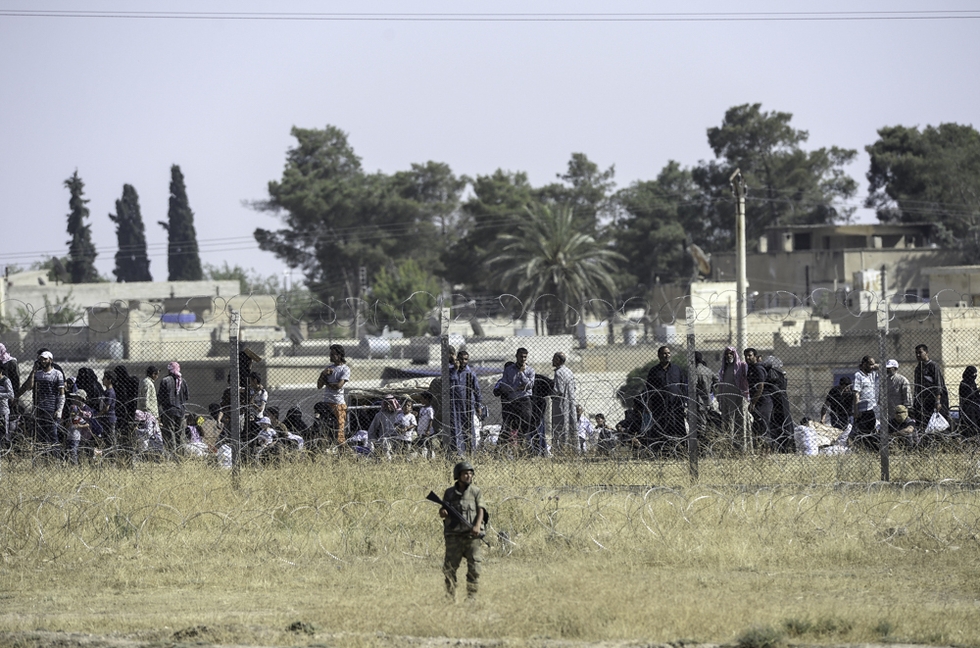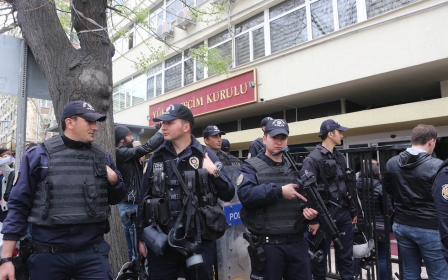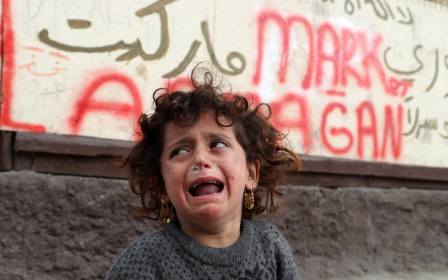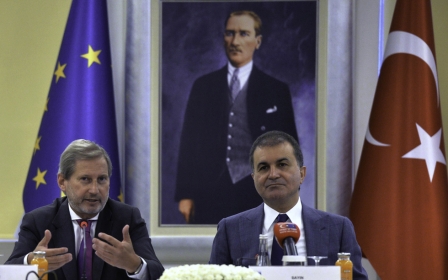Turkey arrests troops who beat Syrian refugees on video

The Turkish army has arrested a group of soldiers who were filmed beating and verbally abusing a group of young Syrian refugees who attempted to illegally cross the border, it said late on Sunday.
In a statement posted on its website, the army said that "the personnel in question were taken into custody and all administrative and judicial procedures have been immediately started against them".
The incident, which took place on 28 July at 11am local time on the Turkish-Syrian border, was filmed by one of the soldiers. The video was widely shared on social media after being sent to someone in Germany.
The video, which has not been independently verified, showed the four soldiers kicking and beating the group of young men and shouting at them in Turkish.
"Will you come to Turkey again? Be quiet man! Don't shout," says a soldier in the video. One soldier is seen repeatedly kicking one of the refugees on the ground.
Another soldier says to one of the men "why did you bring the refugees in? Are you a smuggler?"
The refugees were deported from Turkey, after being handed to the police and having undergone a health check, the army's statement said.
According to Turkish daily Hurriyet the four Syrians were spotted attempting to cross the border by two soldiers identified only as SB and EP.
The beatings took place at the soldiers' outpost and were recorded by a soldier identified as YG and shared with a contact in Germany identified only as Feride A using the username "Agido Tom", through WhatsApp on 29 July.
The video shows that the soldier who filmed the beating also attacked the men.
'An act carried out to weaken Turkey'
Officials investigating the incident said that the fact the footage was sent to Germany was "meaningful" and said the incident was "an act carried out deliberately to weaken and harm Turkey and the Turkish Armed Forces".
Relations between Turkey and Germany have deteriorated in recent months after a failed coup in Turkey led to a purge of public officials believed to have links to the coup plotters.
Turkey accuses exiled cleric Fetullah Gulen of having orchestrated the coup. German officials have questioned to what extent followers of Gulen were involved.
Ankara has accused Germany of supporting the group of Gulen followers which it refers to as FETO, whereas Germany has accused Turkey of conducting "unacceptable" espionage against Gulen supporters in Germany.
The latest incident to harm relations was the arrest of German human rights activist Peter Steudtner and five other human rights activists, including Amnesty International's Turkey director Idil Eser.
The German federal police received a list of 678 German companies that Turkey suspected of supporting terrorism. German officials dismissed the claims which Turkey later dropped.
Turkey's response to the large number of Syrian refugees entering the country has been largely applauded by its allies.
This latest incident could, however, point to growing tensions in the country over the 2.9 million Syrian refugees it hosts, the majority of which are scattered throughout the country.
Earlier this month, a Syrian refugee in Turkey was raped and bludgeoned to death by rock-wielding attackers just days before she was due to give birth, and her 10-month-old baby strangled, in a brutal double murder that sparked outrage.
In the early stages of the Syrian conflict Turkey had an "open door" policy for Syrians seeking to flee to the country but in reality the border has tightened considerably since then.
Rights groups, including Amnesty International, have accused Turkish troops of firing on Syrians seeking to cross the border, with several fatalities reported.
New MEE newsletter: Jerusalem Dispatch
Sign up to get the latest insights and analysis on Israel-Palestine, alongside Turkey Unpacked and other MEE newsletters
Middle East Eye delivers independent and unrivalled coverage and analysis of the Middle East, North Africa and beyond. To learn more about republishing this content and the associated fees, please fill out this form. More about MEE can be found here.




